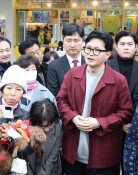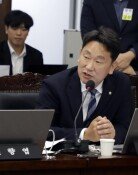Ruling Backs School Admissions Freedom
Ruling Backs School Admissions Freedom
Posted March. 24, 2006 02:59,
Many are calling a recent public prosecutors` offices decision a direct blow against the three-nos university entrance procedure backed by the Ministry of Education and Human Resources Development.
Korea University, Yonsei University, and Ewha Womens University were accused of interfering in the execution of a high school ranking system to distinguish university applicants. Criminal Case Team 7 of the Central District Public Prosecutor`s Office cleared these three universities that had been accused by four education organizations, including the Parents Association for True Education, of applying a high school ranking system in their early admissions procedures for the first semester of 2005.
Prosecutors ruled that even though the universities gave applicants a few extra points, professors acted at their discretion, and that the law states that the applicant selection process is up to the dean of a private university. It also said that the universities did not interfere in the applications process just because they did not notify the public in detail of how they evaluated students.
Prosecutors said that it is reasonable for universities to distinguish and award extra points to applicants during the interview process, and that such actions are a part of the know-how involved in the selection process. It also commented that in 1999, the Ministry of Education and Human Resources Development issued university entrance guidelines that encouraged universities to utilize data from past scholastic aptitude tests to allay the problem of a wide gap in scholastic ability between high schools.
In October 2004, the ministry investigated the three universities and subsequently cut one billion won in government financial support for two years from 2005 to 2006.
High school ranking system still forbidden-
The Ministry of Education and Human Resources Development said on Thursday that the Public Prosecutors Offices decision merely rules that the application of the high school ranking system was not interference in the admissions process by law. The ministry said that the system discriminates against applicants based on their high school and previous records, and that it goes against the constitution.
The ministry said that it is not discussing an enactment of a law prohibiting the ranking system because it can regulate universities through financial punishments that are already available.
Some are worried that the Public Prosecutors Offices decision might harm the justice of the university entrance policy amid Deputy Prime Minister and Minister of Education Kim Jin-pyos recent urges to major universities requesting that they reflect high school records more.
Universities welcome the decision-
All three universities say that the decision was sensible because they had not even begun administering the high school ranking system.
Superintendent of Admissions at Korea University Kim In-mook said that his university had been creative in trying to select the most qualified students without violating the three-nos policy, and that it is unjust that the ministry slashed its financial support.
Superintendent of Admissions at Yonsei University Lee Jae-yong said that the university agrees with the Public Prosecutors Offices decision, and that it will discuss how to respond to the cut in ministrys financial support.
Superintendent of Admissions at Ewha University Choi Eun-bong said that universities must be given the environment to select students with autonomy.
Superintendent of Admissions at Seoul National University Lee Jong-seob said that the decision is the result of the Public Prosecutors Offices regard for the discretionary authority of universities, and that it is right to let universities decide the principles of the university entrance procedure.
The Parents Association for True Education and the Korean Teachers and Educational Workers Union expressed unhappiness with the ruling and called for the enforcement of the three-nos policy.
Jin-Kyun Kil crystal@donga.com leon@donga.com







